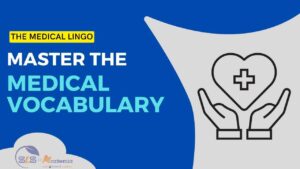Jargon to Justice: Build Your Legal Vocabulary
Legal Vocabulary Builder
Legal vocabulary refers to the specific words and phrases used in the field of law. These words and phrases often have specific meanings within the legal context and may not be commonly used in everyday language. Legal vocabulary includes words such as “complaint,” “affidavit,” “citation,” “due process,” “amicus curiae,” “amicus brief,” “amicus curiae brief,” “amicus curiae” and many more.
Legal vocabulary is used in legal documents, court proceedings, and legal writing, and is often specific to certain areas of law, such as criminal law, contract law, or constitutional law. It is important for legal professionals and those working in the legal field to have a strong understanding of legal vocabulary to be able to effectively communicate and understand legal content. Legal professionals are often encouraged to expand their legal vocabulary by reading extensively, participating in legal discussions, attending professional development training, and studying legal terminology.
Here are some ways to improve legal vocabulary:
Read extensively: Reading legal-related books, articles, and publications will expose you to a wide range of legal vocabulary. This can include case law, statutes, legal treatises, and law review articles.
Use flashcards or vocabulary lists: Create flashcards or lists of new legal words and phrases you come across and review them regularly.
Practice active reading: When reading legal materials, underline or highlight new vocabulary and look up words you don’t know. Try to use them in sentences to solidify your understanding of their meanings.
Write: Writing legal briefs, memos, and contracts allows you to practice using legal vocabulary in context.
Use online resources: There are many online resources, such as legal vocabulary quizzes and vocabulary games, that can help you learn and practice legal vocabulary.
Attend professional development training: Attend professional development training and workshops to learn about specific legal terminology and new trends in your field of law.
Participate in legal discussions and court proceedings: Participating in legal discussions and court proceedings allows you to hear and use legal vocabulary in context. Ask questions, provide examples, and make connections with the vocabulary you know.
Get feedback from colleagues or mentors: Have your legal writing reviewed by a colleague or mentor who can provide feedback on your use of legal vocabulary.
Watch legal-related videos or webinars: Watch legal-related videos or webinars that can provide you with a good understanding of the legal vocabulary used in different areas of law.
It’s important to note that improving legal vocabulary is a process that takes time, so you should be patient and persistent with your efforts. Remember that your goal is to learn the words and phrases that will be most useful to you in your legal work and to use them effectively in your writing, speaking, and legal proceedings.
101 commonly used Legal vocabulary words
- Acquittal – a decision by a jury or judge to find a defendant not guilty
- Administrative Law – laws related to the powers and procedures of government agencies
- Affidavit – a written statement made under oath
- Appeal – a request to a higher court to review a lower court’s decision
- Arbitration – a process in which a neutral third party makes a binding decision in a dispute
- Bail – the release of a person from custody on the condition that they will return for trial
- Bailiff – an officer of the court responsible for executing court orders
- Burden of proof – the responsibility to prove a fact in a legal case
- Civil law – a body of law dealing with non-criminal matters, such as contracts and property
- Common law – a body of law based on judicial decisions rather than statutes
- Complaint – a legal document outlining the plaintiff’s allegations
- Conservatorship – the legal authority to manage the property and financial affairs of someone unable to do so
- Contract – a legally binding agreement between two or more parties
- Contempt of court – an action that interferes with a court’s authority or dignity
- Deposition – testimony given under oath outside of court
- Evidence – information presented in court to prove or disprove a fact
- Executor – a person appointed by a court to manage the estate of a deceased person
- Fiduciary – a person or entity who is legally obligated to act in the best interest of another
- Guardianship – the legal authority to make decisions for someone who is unable to do so
- Injunction – a court order to stop or prohibit a certain action
- Intellectual Property Law – laws related to the protection of creative works and inventions
- Judgment – a decision made by a court in a legal case
- Jurisdiction – the authority of a court to hear and decide a case
- Labour Law – laws related to the rights and duties of employers and employees
- Lien – a legal claim on property as security for a debt or other obligation
- Mediation – a process in which a neutral third party helps disputing parties to reach a settlement
- Notary – a public official authorized to certify documents and administer oaths
- Ordinance – a law passed by a local government
- Power of attorney – a legal document giving someone the authority to act on another’s behalf
- Pleading – a document filed by a party in a legal case
- Plea – a formal statement in court of a defendant’s guilt or innocence
- PIL (Public Interest Litigation) – a legal action taken in the public interest, usually by a social activist or NGO
- Precedent – a previous court decision used as an example or authority in later cases
- Probate – the legal process of administering a deceased person’s estate
- Public law – a body of law dealing with relationships between individuals and the state
- Private law – a body of law dealing with relationships between individuals
- Regulation – a rule or order issued by an administrative agency
- Registrar – an official in charge of maintaining court records
- Secular – not related to religion, or not bound by religious rules
- Sentence – the punishment given to a person convicted of a crime
- Statute – a law passed by a legislature
- Statute of Limitations – a law that sets a time limit for taking legal action
- Adjudication – the process of making a decision in a legal case
- Advocate – a legal professional who represents clients in court
- Appellate – relating to an appeal, a higher court’s review of a lower court’s decision
- Civil procedure – the set of rules for conducting a civil lawsuit
- Code – a collection of laws on a specific subject
- Collateral – property pledged as security for a loan
- Common property – property owned jointly by a group of people
- Constitutional Law – laws related to the Constitution and the powers of government
- Consumer Law – laws related to the rights and protection of consumers
- Criminal procedure – the set of rules for conducting a criminal trial
- Damages – financial compensation awarded to a person as a result of a legal case
- Deed poll – a legal document executed by one party
- Defamation – the act of making false statements that harm someone’s reputation
- Discovery – the process of gathering evidence in a legal case
- Equity – a system of justice that supplements common law and is based on fairness and natural justice
- Evidence act – a law that lays down the rules of evidence in court
- Family law – laws related to marriage, divorce, adoption, and child custody
- Habeas corpus – a legal order requiring a person to be brought before a court to determine the legality of their detention
- Indictment – a formal accusation that a person has committed a crime
- Insurance Law – laws related to the regulation of insurance companies and the rights of policyholders
- Alienation – the transfer of ownership of property
- Anti-Trust Law – laws related to competition and preventing monopolies
- Appeal – a request to a higher court to review a lower court’s decision
- Arbitrator – a person appointed to make a binding decision in a dispute
- Bill of rights – a set of legal guarantees protecting individual rights
- Case law – the law established by judicial decisions
- Class action – a legal action brought by a group of people collectively
- Coercion – the use of force or threats to make someone do something
- Collusion – secret cooperation for an illegal or fraudulent purpose
- Commercial Law – laws related to business transactions and commerce
- Community property – property owned jointly by a married couple
- Computer crime – illegal activity committed using a computer or the internet
- Conciliation – a process in which a neutral third party helps disputing parties to reach a settlement
- Conflict of laws – the legal principles that govern when a legal dispute involves more than one jurisdiction
- Consumer Protection Law – laws related to protecting consumers from fraud and unfair business practices
- Contracts of adhesion – standard form contracts, often presented on a “take it or leave it” basis
- Contingency fee – a fee charged by a lawyer that is based on the outcome of the case
- Copyright Law – laws related to the protection of creative works
- Corporate Law – laws related to the formation, regulation, and dissolution of corporations
- Counterclaim – a claim brought by a defendant in a legal case
- Criminal Law – a body of law dealing with criminal matters and punishments
- Customary law – a body of law based on long-standing customs and traditions
- Cyber law – laws related to the internet and technology
- Damages – financial compensation awarded to a person as a result of a legal case
- Deed – a legal document that transfers ownership of property
- Defamation – the act of making false statements that harm someone’s reputation
- Disclaimer – a statement that denies responsibility or liability
- Disclosure – the process of revealing information in a legal case
- Discrimination – treating someone differently based on their race, gender, age, etc.
- Encumbrance – any claim, lien, charge, or liability attached to property
- Endorsement – a signature or statement of support
- Equity – a system of justice that supplements common law and is based on fairness and natural justice
- Estoppel – a legal principle that prevents someone from denying something that they have previously claimed to be true
- Ex parte – a legal proceeding in which one party is absent
- Executed – completed, fulfilled or carried out
- Expropriation – the act of taking private property for public use
- Fraud – the crime of deception or dishonesty
- Indemnification – a legal protection against financial loss
- Libel – the act of publishing false and defamatory statements in writing.
Whether you’re a student preparing for exams, a professional looking to advance your career, or simply someone looking to improve your communication skills and cognitive function, expanding your vocabulary can have a powerful impact on your life. So why not start today, and unlock the power of vocabulary for yourself?
We also have live online classes where we teach 2 courses which are given below. Please go through them and if interested you can take a Free Trial Class.






